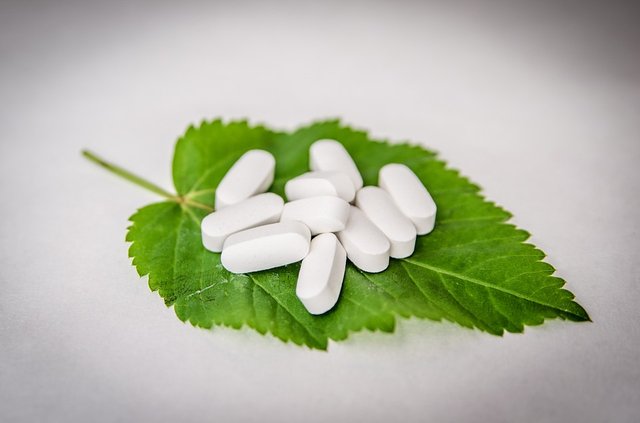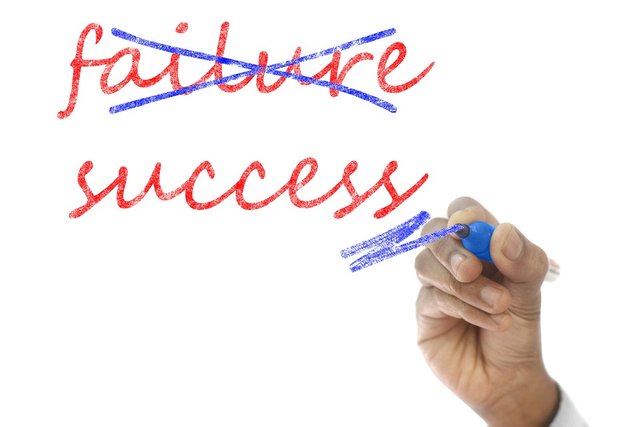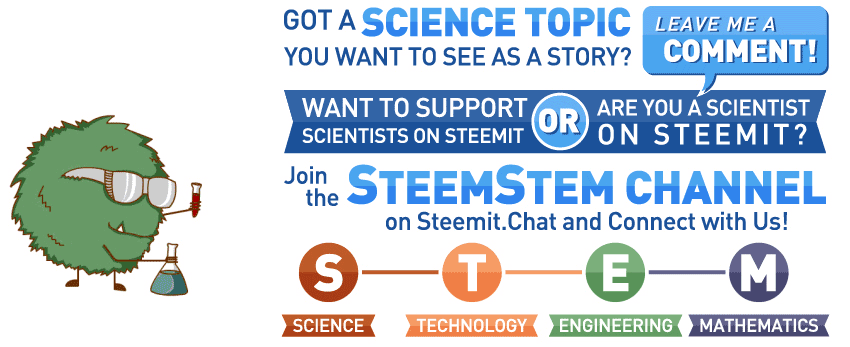Why "Promising" doesn't mean "Cure"

I love the word “promising” when reading publications. It’s even better than “the results were not statistically significant” because if you don’t know better, you might think “yes! They found a cure!”. It’s often not the case though.
If you have a bunch of cancer cells in a petri dish and pour pure lemon juice over them, they’ll die. So, ** (that’s basically what this means), lemon juice kills cancer! Nice! Very promising!
And then they give a cancer patient a glass of lemon juice, testing it in vivo and … nothing happens. Maybe the patient pulls a face because the juice is too sour. Maybe they’re allergic to citrus fruit, go into anaphylactic shock and die. But the “promising” results from the petri dish didn’t appear in the actual situation they were needed in.
The testing of new drugs is, of course, a bit more sophisticated than pouring lemon juice on cancer cells, at least in most cases. But in the end, there is always the question: “Did this work because I isolated the cells from their natural environment or despite?”
To answer this, the next step is usually testing it in animals (mostly mice). For many drugs, it stops here because their effects are either not replicable or the side effects are so bad that no sane person would test this on a human. But if everything looks good (and the drug is approved for human testing), it goes into clinical trials.
In phase 0, they test the drug on a small number of people in a very low dose, generally not enough to treat anything. Behavior of the drug, movement in the body and general responses are what’s being looked at during this time. @suesa
Phase I has some more patients and is used to figure out the safe dosage, side effects and again, the effects on the disease (does the cancer shrink?).

Phase II is similar to Phase I and basically serves as the next step to Phase III, which compares the new drug to those already available. The final phase, phase IV, starts when the drug is already licensed and is looking at the long-term risks and benefits, the side effects and its effect on a larger number of patients.
You can already guess that all of this takes a lot of time and the development can fail at any stage, a medication already on the market can be taken off of it if it proves to be dangerous after all (see Contergan). But how often do we hear about that? Most of the time, I just hear people complaining about how the “promising drug X is still not on the market”.
This morning, I stumbled across the Unlucky 13 list by the GEN journal, which presents 13 drugs that failed during their clinical trials. I picked some to show you what can happen to make such a trial fail - and what the results are.
The drug was intended to treat wet age-related macular degeneration, which is an eye disease, caused by abnormal blood vessels. It wasn’t the first study, two others that completed Phase III had failed before, as there was no benefit for the patients.
The company finally concluded that the drug was unlikely to succeed. The failed study was followed by a firing of about 80% of all employees.
The heart of pregnant women needs to do a lot more work than that of the average human. The hormone relaxin-2 is believed to help that, as it’s found in higher concentrations during pregnancy. Building on that assumption, Novartis created seralaxin, a drug similar to the hormone, which was supposed to reduce worsening heart failure and cardiovascular death.
During Phase III, it didn’t do either successfully.
There were plans to remove 500 jobs shortly after.
Created to help with progression-free survival ("the length of time during and after the treatment of a disease, such as cancer, that a patient lives with the disease but it does not get worse"), tarextumab didn’t provide results that were significantly better than those from the placebo group. Tarextumab combined with chemotherapy gave the patients 5.6 months of progression-free survival, chemotherapy and the placebo 5.5 months. This time, it was a failure during Phase II.
The failures above might be frustrating, but at least the results were just “doesn’t work” and not “is probably the reason our patients die”. During Phase III, seven patients developed sepsis and five of them died. Four of the seven had agranulocytosis, which is an acute condition with a dangerously low white blood cell count.
If patients start dying, you can’t keep researching. Obviously.
It’s almost surprising that, despite all these trials, there are still drugs that turn out to be dangerous. But the process isn’t perfect, it’s (at least right now) impossible to test new medication and include all possible genetic variations.
And considering the fact that sometimes people die during the clinical trials, it’s even understandable that we haven’t managed to get rid of animal experiments yet.
In any case, I want you to keep this in mind: Just because a substance is described as “promising” in a publication doesn’t mean it will work as medication. Think.
Sources:
Novartis Axes 500 HQ Jobs, Adds 350 "High-Tech" Positions
Seattle Genetics Halts Enrollment in Vadastuximab Talirine Trials
What Is Acute Myeloid Leukemia?
After Patient Deaths, Acorda Halts Development of Parkinson's Candidate Tozadenant
OncoMed Reviews Portfolio after Tarextumab, Brontictuzumab Setbacks
Novartis' AHF Drug Serelaxin Fails Trial Nearly Three Years after FDA Rejection
Anticipating Third Phase III Failure, Ophthotech and Novartis Rework Fovista Accord
Pictures taken from pixabay.com

I could kill cancer with lemon juice. Just give me a container with 2500 liters of lemon juice and let me drown cancer patients in it.
But the potential medicine. It's a delight to read in the news regarding many potential new solutions for different things. A new drug which helps against specific types of cancer, heart problems, memory problems...
And in the end, they either help only a tiny bit or will kill someone.
Even though I appreciate media giving space to the new studies regarding medicine, I'm unhappy with the fact how they are presenting things as superb solutions, sometimes with no reason to do that.
People who do not understand science or medicine will get excited and disappointed in most cases.
And I feel bad, if someone actually is waiting for a cure and it turns out it doesn't work like the media portrayed it to be. Nobody wins.
the media wins.
You could think so, but how many people distrust media nowadays? Media is losing too, they haven't just noticed it yet.
you are rite...same will happen in media
they surely did
Part of the problem with the media's representation of science is that they don't understand it themselves. One of the most most fundamental rules - "correlation does not equal causation" - is blatantly disregarded in media coverage. I find this especially true for longitudinal or cohort studies, where they are trying to identify risk factors, but then the media reports every other day that drinking a glass of wine will extend your lifespan/shorten your lifespan.
Science could do a better job explaining things and translating things into a way that people can understand and people need to become better consumers of science and educate themselves on how research is presented. It is a two way street to ensure that we start winning!
That's true, regular media is also willing to cover topics they do not typically handle and journalists writing about the topics rarely know very much about the topic they write about. At worst, they are just copying another article of the topic and dropping a part out.
But at best, the articles can contain references to the original study so readers who are interested can find the studies and see through them themselves.
isn't it better to get some overall worthless medicine than not even getting something that might work for some individuals?
I'm not sure if I understood this, so can you rephrase this so I can comment properly? :)
something that will work for some is better than nothing
Ah. Well I'm assuming there is little interest in producing a medicine which works only for a small portion of people, as it would be useless for the most.
i really don't know who is this nobody ..but you are the winner for me ..
yes, I agree to your post, placebo effect tends to trick people’s mind
Lots of things kill cancer in a petri dish. I keep telling this to all the people who say weed kills cancer
Lol
I love this so much.
I think it's hard to cure illnesses that have 2,000 different sub-categories and 300 sub-reasons and a genetic component.
I think this means: we still don't know. And I also think a well working novel therapy could wipe out the profits of companies selling common therapies that then are inferior.
IF, hypothetically, there would be a not patentable cure - would companies say: ok, it works, we will forgoe this business now? If it's multi-billion dollars?
Does someone share my concerns?
That is awesome!
A powerful poison can kill anything. Including the patient. The point is to do selective killing, as they do with insecticides at crops. The thing is, life always finds a way to adapt fast and before you know it a cure no longer works after a few years, since the target gains immunity.
There can never be a panacea since life constantly finds ways to stick around.
I have no idea about this laetril, but like all medicine it will work differently on every patient.
Hello, I set up my blog on steemit. I like to take a selfie, travel, contact me, enter my blog and see what's new https://steemit.com/life/@beyonndkiller/asia-s-latest-selfie-sexy-goddess-daily-life4
Like you said in the end, question is how many drugs go through all the phases without actually being effective. The power of placebo is not to be underestimated. And I suppose not all can be tested on animals or behave radically different on humans.
You can't make a Zyklon B without gassing a few Jews
Dude
What? It's true.
I knew someone who died in drug testing. The happening was so horrible. It's so sad ti hear that many are dying because of drug testing. Of course it has the most accurate results compared to testing it on animals
Media hypes a lot of stuff that relates to high visibility topics. A new theory on cancer will get a zillion times more attention than millions still dying from TB or Malaria. It's Bemjamins at the end of the day. And, moreover it's not just media that creates hype, it's the stakeholders of theories, products who sell their ideas.
Cholesterol was so much hyped by industry, professionals and media for decades, and now it turns out neither HDL nor LDL are as good or as bad as they were made out to be. Science is and will always will be driven by Dollar.
So sad but true.
Never really thought about it that way. I usually thought the drugs described as promising were the good ones, but now i know better
But @suesa, I was just wondering, how do they get people for first human trial is it voluntary or wat?
Yep, volunteers
Some people are strong. Arent they afraid of the possiblity of death during testing of the drug in phases
Love it. I think there's a real problem with the way that the media communicates science.
It's funny because the business, property and celebrity sections are never dumbed-down... but for some reason the only science we ever get is 'promising' breakthroughs. Which is to say a new substance killing cancer cells in-vitro.
:'(
This is why it is so important to have PR agencies, who specialise in science and employ people with backgrounds in science AND communication. In my opinion, a lot of miscommunication is based on misunderstandings or misinterpretations of scientific results. But of course, scientists will first have to understand the value of good science communication.
I agree... though that's a rare combination of skills to have. In all my studies I've only met a small handful of students who I'd trust to explain their research to a layperson, without just confusing them.
Hopefully as we progress and education gets better people will realize the value in investing in and spreading good scientific knowledge and information.
There is a very big broblem the communicate science my dear. Not everyone have a intimate idea about science and its branches. Most people just stop-by and say there mind. @ozumba
Extremely well written!
Another interesting concept is the whole idea regarding Post Market Surveillance. These drugs
when going through clinical trials and being pumped through the pipeline take in consideration many factors, yet each individual many respond differently than the next.
Post market surveillance attempts to monitor the safety and efficacy of a drug or device after it has been released into the market! So we know (for the most part) how Drug X works, but we do not truly know the effects of Patient A when taking Drug X AND Drug Y in combo, or how Patient B will react when taking Drug X and Drug Z... what about Patient C taking Drug X, Drug Y, and half the regular dozen of Drug Z while being on a low carb diet, sedentary life style, being a female, as well as drinking ‘average’ amounts of caffeine?
It is very interesting how these medications function in our bodies, as well as the varied effects they have on people!
Thank you for your article, it was a pleasure to read!
No single drug works the same for everyone, which is why you adjust a mixture of different drugs based on performance
There's the same problem in "my" field of science. There are loads of studies describing positive health effect of different foods and food constituents, and every day, there's a new "superfood" (how I hate this word^^) in town.
And if you look it up, it's just an in vitro study using completely irrelevant concentrations.
I think the main problem is how media presents it. We scientist know which type of study really means that you have a proven effect, and which just provide hints and preliminary data.
But the public does not, and thus jumps on every reported effect, no matter under which conditions it was produced. We need much better public reporting of science.
If someone wants to reduce their body weight, they will look for the pill, milkshake, tea, etc. that makes the miracle, rather than modify their diet and lifestyle because most people prefer the easiest way, which is used by the industry and the whole chain involved.
so true...
Oh, superfood. Such an exhausting topic..
A nutritious or non-nutritious compound present in foods has your intrinsic characteristics and your power to effect changes in human health is impressive, either positively or negatively. However, this effect depends on multiple factors, it can not be taken in isolation. It is the beauty of science, to discover how it interacts with other elements and the human organism. It is incredible to see that the behavior of the same compound of a food can benefit in the fight against cancer to someone, while another person can harm it, due to genetic polymorphisms. Science never stops, fortunately!
What today is a truth, tomorrow may not be true, at least for some.
brrrr, u said the word....bibber
I'm an undergraduate in microbiology and i have to say this post was really educating. Thanks @suesa. My opinion in this is that scientist these days jumps into conclusion early without ascertaining what the effect of the promising drugs might leads to when used as medications. Two types of disease causing microorganism might have the same symptoms in human cell. Just because lemon juice kills one does not mean it can kill others.